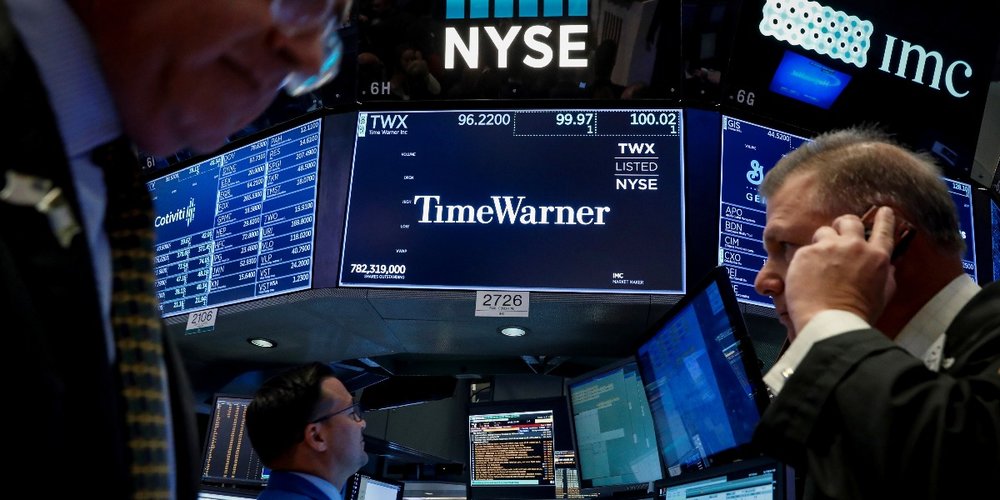AT&T’s $85.4 billion acquisition of Time Warner has now been finalized after a federal judge ruled in favor of the business deal last week. The decision was momentous for both AT&T, which is one step closer to becoming the biggest telecom-media giant in the world, as well as for Trump Administration’s Justice Department, which had hoped to promote new antitrust regulation by blocking the merger.

On Tuesday, a federal district court ruled in the favor of AT&T’s acquisition of Time Warner for $85 billion
$85 Billion Mega-Merger
AT&T CEO and Chairman Randall Stephenson released a statement after the court ruling expressing his happiness over the federal judge’s decision to approve the company’s $85-billion merger with Time Warner. Stephenson said that HBO, Warner Bros. and Turner’s immaculate creative talent combined with AT&T’s ability to distribute content directly to consumers will change the shape of the entertainment industry, providing viewers a mobile-first, high quality entertainment experience.
Time Warner, which owns HBO, Warner Bros. and Turner will remain under the chairmanship of Jeff Bewkes, who is also the CEO of the company, until the merger is complete. All the units under Time Warner will now be added to the media and entertainment department under AT&T, overseen by John Stankey. Stephenson said that Jeff Bewkes is the most accomplished leader in the media and entertainment business and his continued council during the merger is much appreciated. Bewkes will act as the senior advisor to the company during the transition period.
AT&T first announced its decision to acquire Time Warner in October 2016, but the merger was fiercely opposed by Donald Trump, who, at the time, was campaigning for the presidential election. The then-candidate said that such mergers are an example of media power structures which have been trying to suppress the voices of his supporters and working against his presidential campaign.
Federal District Court’s Ruling
The deal was eventually stalled due to a lengthy investigation by the US Justice Department which lasted almost 18 months. As a result of the investigation, AT&T was asked to forgo its relationship with Turner Broadcasting, which owns CNN, and all of its DirectTV services in order to get the approval for the merger. AT&T refused and the Justice Department filed an antitrust lawsuit against the telecommunications giant claiming that the acquisition deal could be bad for consumers and other competitors in the industry.
However, the Justice Department’s legal arguments were rejected in the Federal district court on Tuesday. Judge Richard Leon who gave the verdict said the government had no proof that the new deal would force consumers to pay higher prices for accessing Time Warner content. On the contrary, AT&T contended that the merger could save viewers millions of dollars. DOJ also failed to prove its claim that AT&T would start charging entertainment distributors more money for Turner content after acquiring Time Warner.

The merger was stalled due to a lengthy investigation by the US Justice Department which lasted almost 18 months
The federal judge said that stalling the merger could bring irreparable harm to the two companies which is why the government should not consider appealing his decision. The DOJ allowed the deal to be passed but said that it would continue to look for grounds for a possible appeal.
Will the Merger be Successful?
AT&T convinced the federal court that merging a leading entertainment provider with the country’s biggest telecommunications company will be nothing but beneficial for the consumers and the industry. Stephenson said that there is a need for innovation in how video is distributed and viewed by consumers, and by closing the deal AT&T plan to capitalize on the game-changing opportunity.
But even with the merger approved by the federal court, AT&T has a difficult road ahead in ensuring the success of the acquisition deal. Analyst John Hodulik says that the merger’s success depends on how the telecommunications company executes it. There is a clear opportunity for AT&T to leverage content from its newly acquired units and offer unique entertainment bundles to consumers and pursue targeted advertisements, which could define the long-term impact of the deal.
After the merger, the telecommunications giant will consist of four business units – including its newly added media group. AT&T Communications will remain the biggest unit in the company which will sell mobiles and broadband services. The international unit will provide IT services in Mexico and 11 other countries in South America. AT&T will also sell targeted advertisements on Tuner through its advertising and analytics unit.










